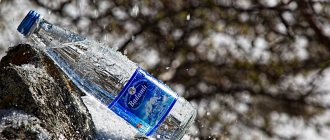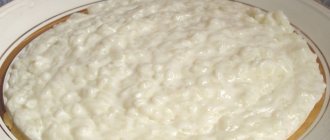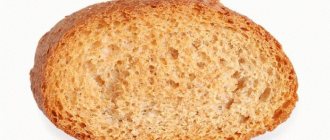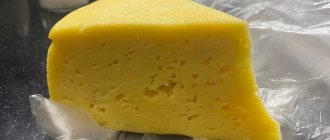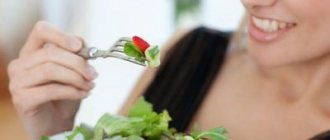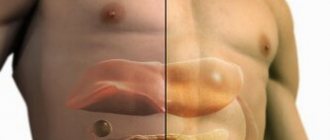General rules
Esophagitis is inflammation of the mucous membrane of the esophagus. Chronic diseases of the esophagus are most often associated with the reflux of gastric and duodenal contents into the esophagus (esophageal reflux). Hydrochloric acid , pepsin , and bile acids are considered factors of aggression that have a damaging effect. At the same time, bile acids can also cause malignancy (malignancy). The appearance of reflux is influenced by many factors: impaired gastric motility, short esophagus, decreased tone of the esophageal sphincters, diaphragmatic hernia or increased intra-abdominal pressure.
Thus, esophagitis is the most common complication of gastroesophageal disease and occurs in a third of patients suffering from this disease. There are catarrhal (non-erosive) and erosive forms of the disease. For a long time it was believed that these were successive stages of development, but the results of observations suggest that these forms do not tend to transform into one another and exist independently. It has also been found that esophagitis is not caused by direct mucosal acid damage, but by complex cytokine-induced mechanisms .
Separately, it is worth highlighting esophagitis caused by taking medications (these include non-steroidal anti-inflammatory drugs and biosphosphonates), radiation therapy and Candida fungi.
The bacterium Pyloric Helicobacter plays a major role in the development of gastritis (meaning the chronic form). Therefore, all patients with chronic gastritis are advised not only to undergo endoscopy, but also to diagnose H. Pylori infection.
With gastritis and esophagitis, the patient is bothered by epigastric pain, heartburn , sour belching and chest discomfort (feeling of a lump). Heartburn may worsen when lying down, after eating and eating foods that weaken the tone of the esophageal sphincter (alcohol, coffee, animal fats, chocolate, citrus fruits).
“Small” organic signs of gastrointestinal damage (gastritis and catarrhal esophagitis) are easier to treat than “large” (ulcerative esophagitis) and functional disorders.
The nutrition of patients is certainly of great importance. Eating spicy foods, hot and rough foods has an irritating effect and aggravates the course of gastritis and esophagitis. And fatty and fried foods, smoked foods, and alcohol cause increased reflux, which maintains inflammation of the esophagus. Eating a lot of food at night causes increased production of hydrochloric acid and contributes to its reflux into the esophagus at night.
The diet for gastritis and esophagitis is aimed at sparing the mucous membrane of the stomach and esophagus, and involves reducing the frequency of reflux. In this regard, it is recommended:
- split meals and moderate meals in the evening;
- consumption of products with an alkaline reaction (sour cream, cottage cheese, boiled meat, milk, steamed omelettes);
- limit the consumption of foods that have an irritating effect (hot, spicy, alcohol, coffee, onions, garlic, citrus fruits, sour foods);
- exclusion of foods that reduce the tone of the esophageal sphincter (animal fats, carbonated drinks, chocolate, strong coffee, rye bread).
For reflux and heartburn symptoms:
- quitting smoking, since nicotine weakens the tone of the esophageal sphincter;
- avoid bending over and performing exercises that involve abdominal tension;
- avoid constipation, as straining increases intra-abdominal pressure;
- exclusion of foods that cause flatulence (legumes, grapes, carbonated drinks, kvass, yeast baked goods, bread, raisins);
- Avoid taking medications that can cause reflux (beta blockers, tranquilizers, sedatives, theophylline , nitrates, prostaglandins, calcium channel inhibitors).
For these diseases, food should be boiled or steamed. The degree of sparing (meaning rubbing of food) depends on changes in the mucous membrane and the severity of symptoms. In case of erosive lesions of the mucous membrane of the stomach and esophagus, as well as severe pain symptoms, the most gentle diet is recommended, corresponding to dietary Table No. 1A :
- Meat/poultry/fish dishes prepared in the form of puree or soufflé (the meat is scrolled several times or beaten in a blender).
- Decoctions of cereals, pureed soups, puree soups with the addition of raw beaten eggs or cream.
- Milk, cream, thoroughly pureed cottage cheese or cottage cheese soufflé.
- Steamed omelettes or soft-boiled eggs.
- Buckwheat or oatmeal porridge, boiled in water and, if desired, milk. You can prepare pureed semi-liquid porridge with butter.
- Jelly made from berries and fruits, fruit jellies with sugar and honey.
- Tea with milk, rosehip infusion, diluted juices.
With catarrhal esophagitis and gastritis, there is no need for maximum sparing of the mucous membrane and patients are recommended to eat Tables No. 1B or No. 1 , in which wiping of food is not provided. Table No. 1 is suitable for long-term or constant nutrition , since its composition is complete and at the same time gentle on the stomach. No. 1 is recommended during the period of recovery and consolidation of treatment results. It is fashionable to use this therapeutic food during periods of mild exacerbation or in the autumn-spring period, when the patient is taking anti-relapse treatment.
All irritating foods are excluded - broths, citrus fruits, rye bread, chocolate, tomatoes, dairy products, ketchup, turnips, radishes, sour drinks, citrus juices, onions, garlic, coarse cereals, tomato paste, cranberries, peppers, spices, mint, meat with tendons, ginger, alcohol, coffee, strong tea.
The amount of protein in the diet increases to 100 g per day, especially in the presence of erosions and esophageal reflux. This is explained by the fact that protein is necessary for reparative processes, and it increases the tone of the esophageal sphincters. At the same time, it is recommended to reduce animal fats in the diet - you should not eat cream, fatty pork, butter in large quantities, fatty goose and duck meat, or products with butter cream. This is due to the fact that fatty and fried foods reduce the tone of the sphincter, and this leads to the reflux of gastric contents into the esophagus and maintains constant irritation and inflammation of its mucosa.
Increased acidity
What mineral water can you drink for gastritis accompanied by high acidity? Patients with this form of the disease usually feel very unpleasant, so you need to follow a diet and avoid excesses in the diet. Along with proper nutrition, doctors sometimes recommend mineral water with an alkaline composition.
So-called hydrocarbonate waters suppress the secretion of hydrochloric acid by the stomach by binding hydrogen ions. The secretion of mucus increases, eliminating the appearance of excessive HCI. Proper intake of alkaline mineral water will eliminate heartburn and nausea.
With gastritis, which is characterized by high acidity, it is better to drink water at room temperature, not cold, 30 minutes before meals. It is recommended to repeat the dose up to 3-4 times a day, and the duration of the course is prescribed by the doctor (usually from two weeks). Which mineral water is best for acidity and gastritis? Doctors most often recommend:
- Dilijan;
- Borjomi;
- Nartan;
- Talitskaya.
Authorized Products
Diet for gastritis and esophagitis includes:
- Vegetable and cereal soups prepared with vegetable broth. Depending on the patient’s condition, soups are pureed or not pureed. In any case, frying vegetables for dressing is excluded and it is not allowed to add tomato or tomato paste. For dressing, you can use an egg-milk mixture and butter.
- Lightly toasted white bread.
- Minced meat dishes, steamed. For cooking, use lean beef, chicken, turkey, and occasionally lean pork. Among chopped dishes, cutlets and meatballs are preferred, which can be cooked not only steamed, but also baked in the oven, adding sour cream-egg or milk-egg sauce.
- Dishes from lean fish in the form of cutlets, meatballs, meatballs and zraza. You can eat boiled lump fish as it has a delicate texture.
- Non-rough and non-irritating vegetables that contain little fiber - cauliflower, potatoes, zucchini, beets, squash, pumpkin, carrots. They are consumed only boiled, grated or pureed.
- Porridge with water or milk (buckwheat, semolina, rice, oatmeal). For gastritis and esophagitis in the acute stage, the porridge is pureed, and it should be semi-viscous. In the future, the degree of sparing decreases, and the patient can eat unpureed porridge.
- Milk, low-fat cream for cooking, milk jelly, low-fat cottage cheese diluted with milk, cottage cheese dishes (casseroles, cream, soufflé). All fermented milk drinks increase acidity, so their use depends on the patient’s tolerance - if heartburn occurs, they are excluded.
- Butter in dishes and vegetable oils.
- Weak tea (green and black) with added milk, diluted juices from sweet fruits, herbal teas (except mint) with honey.
- Kissels, jellies, compotes and sweet fruit purees.
Table of permitted products
| Proteins, g | Fats, g | Carbohydrates, g | Calories, kcal | |
Vegetables and greens | ||||
| zucchini | 0,6 | 0,3 | 4,6 | 24 |
| cauliflower | 2,5 | 0,3 | 5,4 | 30 |
| potato | 2,0 | 0,4 | 18,1 | 80 |
| carrot | 1,3 | 0,1 | 6,9 | 32 |
| beet | 1,5 | 0,1 | 8,8 | 40 |
| pumpkin | 1,3 | 0,3 | 7,7 | 28 |
Cereals and porridges | ||||
| buckwheat (kernel) | 12,6 | 3,3 | 62,1 | 313 |
| semolina | 10,3 | 1,0 | 73,3 | 328 |
| cereals | 11,9 | 7,2 | 69,3 | 366 |
| white rice | 6,7 | 0,7 | 78,9 | 344 |
Bakery products | ||||
| wheat bread | 8,1 | 1,0 | 48,8 | 242 |
Confectionery | ||||
| jelly | 2,7 | 0,0 | 17,9 | 79 |
Raw materials and seasonings | ||||
| honey | 0,8 | 0,0 | 81,5 | 329 |
| sugar | 0,0 | 0,0 | 99,7 | 398 |
| milk sauce | 2,0 | 7,1 | 5,2 | 84 |
| sour cream sauce | 1,9 | 5,7 | 5,2 | 78 |
Dairy | ||||
| milk | 3,2 | 3,6 | 4,8 | 64 |
| cream 9% | 2,8 | 9,0 | 4,0 | 107 |
Cheeses and cottage cheese | ||||
| cottage cheese | 17,2 | 5,0 | 1,8 | 121 |
Meat products | ||||
| boiled beef | 25,8 | 16,8 | 0,0 | 254 |
| boiled veal | 30,7 | 0,9 | 0,0 | 131 |
| rabbit | 21,0 | 8,0 | 0,0 | 156 |
Bird | ||||
| boiled chicken | 25,2 | 7,4 | 0,0 | 170 |
| turkey | 19,2 | 0,7 | 0,0 | 84 |
Eggs | ||||
| chicken eggs | 12,7 | 10,9 | 0,7 | 157 |
Oils and fats | ||||
| butter | 0,5 | 82,5 | 0,8 | 748 |
Non-alcoholic drinks | ||||
| mineral water | 0,0 | 0,0 | 0,0 | — |
Juices and compotes | ||||
| jelly | 0,2 | 0,0 | 16,7 | 68 |
| rose hip juice | 0,1 | 0,0 | 17,6 | 70 |
| * data is per 100 g of product | ||||
Normal acidity
When the level of stomach acidity due to gastritis, pancreatitis or esophagitis is normal, doctors may recommend drinks from the following brands:
- Sevan;
- Dragovskaya;
- Essentuki 4;
- Hot key;
- Crimean.
These drinks have a neutral pH level, so they do not affect secretory activity. In turn, they trigger peristalsis, saturate the patient’s body with the most important elements and improve overall well-being.
Fully or partially limited products
- Garlic, onions, pickled and pickled vegetables, mushrooms, tomatoes.
- Canned food, smoked meats, seasonings, spices, ketchup, vinegar, mustard, hot sauces, horseradish, tomato paste, pepper.
- Dishes with a large amount of extractive substances: mushroom decoctions, any fried foods, meat and fish broths, stews and fish.
- Sour fruits and sour fruit juices, any citrus fruits.
- Animal fats, lard, mayonnaise, heavy cream, mayonnaise, goose and duck meat, other types of fatty meat.
- Products that increase gas formation: yeast baked goods, radishes, legumes, white cabbage, radishes, raw apples, kvass, beer, drinks with gas.
- Coffee, chocolate, strong tea, cola.
- Fermented milk drinks.
- Raw vegetables and fruits, nuts during an exacerbation.
- Difficult to digest porridges - millet, pearl barley and barley. In addition, millet porridge can cause heartburn.
- Alcohol.
Table of prohibited products
| Proteins, g | Fats, g | Carbohydrates, g | Calories, kcal | |
Vegetables and greens | ||||
| vegetables legumes | 9,1 | 1,6 | 27,0 | 168 |
| canned vegetables | 1,5 | 0,2 | 5,5 | 30 |
| corn | 3,5 | 2,8 | 15,6 | 101 |
| radish | 1,2 | 0,1 | 3,4 | 19 |
| white radish | 1,4 | 0,0 | 4,1 | 21 |
| black radish | 1,9 | 0,2 | 6,7 | 35 |
| turnip | 1,5 | 0,1 | 6,2 | 30 |
| asparagus | 1,9 | 0,1 | 3,1 | 20 |
| tomatoes | 0,6 | 0,2 | 4,2 | 20 |
| horseradish | 3,2 | 0,4 | 10,5 | 56 |
| garlic | 6,5 | 0,5 | 29,9 | 143 |
Fruits | ||||
| citrus fruits | 0,9 | 0,2 | 4,4 | 22 |
Berries | ||||
| grape | 0,6 | 0,2 | 16,8 | 65 |
| gooseberry | 0,7 | 0,2 | 12,0 | 43 |
| currant | 1,0 | 0,4 | 7,5 | 43 |
Nuts and dried fruits | ||||
| nuts | 15,0 | 40,0 | 20,0 | 500 |
| dates | 2,5 | 0,5 | 69,2 | 274 |
Cereals and porridges | ||||
| corn grits | 8,3 | 1,2 | 75,0 | 337 |
| pearl barley | 9,3 | 1,1 | 73,7 | 320 |
| millet cereal | 11,5 | 3,3 | 69,3 | 348 |
| barley grits | 10,4 | 1,3 | 66,3 | 324 |
Flour and pasta | ||||
| pasta | 10,4 | 1,1 | 69,7 | 337 |
Bakery products | ||||
| vysivkovy bread | 9,0 | 2,2 | 36,0 | 217 |
| oatmeal bread | 10,1 | 5,4 | 49,0 | 289 |
| bran bread | 7,5 | 1,3 | 45,2 | 227 |
| whole grain bread | 10,1 | 2,3 | 57,1 | 295 |
Confectionery | ||||
| jam | 0,3 | 0,2 | 63,0 | 263 |
| candies | 4,3 | 19,8 | 67,5 | 453 |
Ice cream | ||||
| ice cream | 3,7 | 6,9 | 22,1 | 189 |
Raw materials and seasonings | ||||
| carnation | 6,0 | 20,1 | 27,0 | 323 |
| mustard | 5,7 | 6,4 | 22,0 | 162 |
| ketchup | 1,8 | 1,0 | 22,2 | 93 |
| cinnamon | 3,9 | 3,2 | 79,8 | 261 |
| Bay leaf | 7,6 | 8,4 | 48,7 | 313 |
| mayonnaise | 2,4 | 67,0 | 3,9 | 627 |
| fresh mint | 3,7 | 0,4 | 8,0 | 49 |
| dried mint | 19,9 | 6,0 | 22,2 | 285 |
| cayenne pepper | 0,7 | 0,2 | 9,8 | 43 |
| ground red pepper | 0,7 | 0,3 | 4,6 | 21 |
| ground black pepper | 10,4 | 3,3 | 38,7 | 251 |
| chilli | 2,0 | 0,2 | 9,5 | 40 |
| tomato sauce | 1,7 | 7,8 | 4,5 | 80 |
| spicy tomato sauce | 2,5 | 0,0 | 21,8 | 98 |
| vinegar | 0,0 | 0,0 | 5,0 | 20 |
Dairy | ||||
| kefir | 3,4 | 2,0 | 4,7 | 51 |
| cream 35% (fat) | 2,5 | 35,0 | 3,0 | 337 |
| sour cream | 2,8 | 20,0 | 3,2 | 206 |
| curdled milk | 2,9 | 2,5 | 4,1 | 53 |
Cheeses and cottage cheese | ||||
| blue cheese | 20,0 | 29,0 | 0,0 | 340 |
| Chees Feta | 17,0 | 24,0 | 0,0 | 290 |
Meat products | ||||
| pork | 16,0 | 21,6 | 0,0 | 259 |
Sausages | ||||
| dry-cured sausage | 24,1 | 38,3 | 1,0 | 455 |
Bird | ||||
| smoked chicken | 27,5 | 8,2 | 0,0 | 184 |
| duck | 16,5 | 61,2 | 0,0 | 346 |
| smoked duck | 19,0 | 28,4 | 0,0 | 337 |
| goose | 16,1 | 33,3 | 0,0 | 364 |
Fish and seafood | ||||
| dried fish | 17,5 | 4,6 | 0,0 | 139 |
| smoked fish | 26,8 | 9,9 | 0,0 | 196 |
| canned fish | 17,5 | 2,0 | 0,0 | 88 |
Oils and fats | ||||
| creamy margarine | 0,5 | 82,0 | 0,0 | 745 |
| animal fat | 0,0 | 99,7 | 0,0 | 897 |
| cooking fat | 0,0 | 99,7 | 0,0 | 897 |
Alcoholic drinks | ||||
| whiskey | 0,0 | 0,0 | 0,4 | 235 |
| vodka | 0,0 | 0,0 | 0,1 | 235 |
| cognac | 0,0 | 0,0 | 0,1 | 239 |
| liquor | 0,3 | 1,1 | 17,2 | 242 |
| beer | 0,3 | 0,0 | 4,6 | 42 |
Non-alcoholic drinks | ||||
| Pepsi | 0,0 | 0,0 | 8,7 | 38 |
| sprite | 0,1 | 0,0 | 7,0 | 29 |
| green tea | 0,0 | 0,0 | 0,0 | — |
| black tea | 20,0 | 5,1 | 6,9 | 152 |
Juices and compotes | ||||
| Orange juice | 0,9 | 0,2 | 8,1 | 36 |
| grapefruit juice | 0,9 | 0,2 | 6,5 | 30 |
| lime juice | 0,0 | 0,0 | 8,2 | 25 |
| lemon juice | 0,9 | 0,1 | 3,0 | 16 |
| tangerine juice | 0,8 | 0,3 | 8,1 | 36 |
| tomato juice | 1,1 | 0,2 | 3,8 | 21 |
| * data is per 100 g of product | ||||
Menu (Power Mode)
In the presence of these diseases, the diet of patients should consist of light dietary dishes that are quickly digested and do not linger in the stomach for a long time. First of all, these should be dairy products, porridge with milk, baked fruits, steam omelettes or soft-boiled eggs. Since boiled or steamed meat and fish dishes are easier to digest, they are preferred over fried ones.
| Breakfast |
|
| Lunch |
|
| Dinner |
|
| Afternoon snack |
|
| Dinner |
|
| For the night |
|
| Breakfast |
|
| Lunch |
|
| Dinner |
|
| Afternoon snack |
|
| Dinner |
|
| For the night |
|
| Breakfast |
|
| Lunch |
|
| Dinner |
|
| Afternoon snack |
|
| Dinner |
|
| For the night |
|
General tips for use
Whether it is possible to drink mineral water to treat gastritis and whether it is beneficial, you should have no doubts. The main thing is to take into account the recommendations of doctors, which will allow you to get only a positive effect.
You need to start drinking mineral water with 1/3 glass and gradually increase the dose. If the acidity of the stomach is increased, it is better to heat the water to 35-40 degrees, and if it is low, a drink at room temperature is suitable. In both cases, mineral water is drunk before meals.
The course of treatment lasts from a couple of weeks to a couple of months, after which a break is required, and then the regimen is repeated. When a patient suffers from chronic esophagitis, the benefit of mineral water treatment will be if the course is repeated every 4-6 months.
Reviews and results
In the presence of gastritis and inflammation of the esophagus, the diet should be followed for at least two months. But even after this time, it is important to exclude foods that can cause deterioration: spicy foods and seasonings, hot sauces, fresh garlic and onions, horseradish, mustard, fried foods.
At first, it seems difficult to eliminate spices, and boiled food may seem bland and lacking in taste. However, patients quickly get used to it and note that changing their diet really helps get rid of discomfort in the stomach and esophagus, heartburn, belching and even bloating.
- “... In the summer, my stomach hurt and heartburn appeared. I did a gastroscopy - gastritis and reflux esophagitis, a weakly positive test for Helicobacter. They prescribed Pariet, De-nol for a month and a half and a diet. It gradually became better, it helped me - there was no pain, no belching, no heartburn. The diet helps: oatmeal with water (you can steam it and add dried apricots, but not from the first week), boiled and stewed vegetables for lunch, buckwheat, boiled fish/chicken. In the evening, porridge or mashed potatoes and a boiled egg. In general, for two months everything was barely stewed and boiled. Since I don’t always follow a diet, exacerbations happen 2 times a year and more often after spicy or pickled vegetables.”
- “... I improved my condition with a diet - I survived it for two months, because I love spices, pepper and generally everything spicy. Mostly I ate porridge (sometimes milk), cottage cheese with milk, steamed cutlets (from any meat - chicken, turkey, beef). I didn’t puree porridges and soups, I added few vegetables. A month later I felt relief, but decided to sit still. You can lose some weight with nutritional therapy. After a strict diet, I feel much better - no pain, discomfort or heartburn. Now I only occasionally allow myself spicy food in small quantities. After eating, I make weak green tea and add a pinch of cinnamon or simply brew cinnamon with boiling water. It soothes the esophagus and eliminates heartburn, it helps me a lot.”
- “... I was bothered by a constant burning sensation in the esophagus and pain. I think it was due to a nervous disorder. I went on a strict diet, in which I needed to eat everything separately: porridge and meat, soups, vegetables, cottage cheese, and at night I drank non-sour fermented baked milk. I excluded sweets and sugar, potatoes, bread, semolina and bananas. I drank tea with honey. This helped me, as I had heartburn from sweet and sour foods, spices and fried foods. A steamer and a multicooker helped me. So I spent 1.5 months on a strict diet and noticed that the sour belching and heartburn went away without pills. My family became involved in my nutrition, so cooking became easier. Eating like this is boring, but it’s worth doing it because of your health.”
Medicinal plants for reflux esophagitis
For reflux esophagitis, the following herbs are useful:
- chamomile;
- licorice root;
- marshmallow root;
- slippery elm
Many people suffering from symptoms of reflux esophagitis experience significant relief from their condition after consuming teas, tinctures and supplements containing these herbs. However, it should be borne in mind that many medicinal herbs can cause various side effects (for example, allergic reactions), as well as interfere with the taking of certain medications.
[Video] Dr. Berg - causes of GERD, and measures to combat it:
